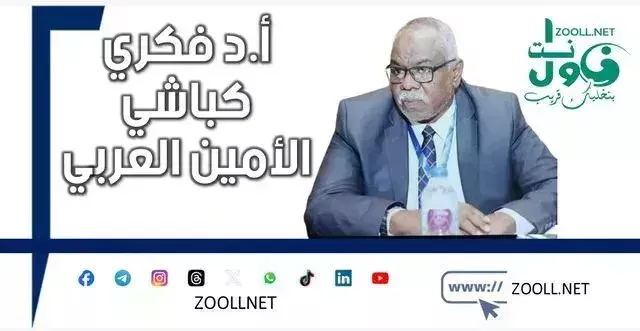Rebuilding the State of Sudan in Light of International Ambitions ✍️ Professor: Fikri Kabbashi, Al-Amin Al-Arabi

Those who are responsible for managing the affairs of the country, whether they are military personnel, civilian politicians, activists or interested parties, must realize that no matter how great its resources are and how many citizens it has, if it does not have a strategic plan that is oriented towards the future, it is natural for it to integrate itself with the projects of other states that are less important than it, whether they are small or large countries, and the relationship of the state with the citizens. In modern systems, the state collects taxes through what is called budget revenues to undertake expenditures on services, the most important of which are security, health and education (at all levels). The testimony given to God is that the Sudanese society. , despite the trials and difficult circumstances it is going through as a result of the outbreak of this cursed war and the resulting displacement to safe states and the horrible deterioration in the provision of all basic services and the resulting insane price hikes, it still clings to its values, morals, noble customs and beliefs in solidarity, cooperation, compassion and brotherhood, far from political intrigues, which indicates and confirms the high degree of awareness and authenticity of the Sudanese people and their belief in their capabilities, and the testimony given to God is that the State of Sudan is rich in material and human resources and only needs someone to lead it and plan to make good use of these available resources. Then, this first African genius will go and take his vacant place among the others. African countries that have shaken off the dust, overcome their bitterness and reconciled with their people have thrown the past behind their backs, turned the pages of hateful wars and destruction and walked firmly into the future, the last of centuries. which is the State of Somalia, which was synonymous with chaos, backwardness, wars and bloodshed until the term “Somalia” became a term threatening countries to continue on their path, to catch up, like the State of South Africa. “It is an example for African countries to overcome their wounds and suffering and walk proudly into the future,” says Nelson Mandela, the former President of South Africa, in his memoirs. After I became president, I asked some of my protection members to walk with me inside the city on foot.
We entered a restaurant, sat down at our seats and each of us ordered the food we wanted. While we were waiting for the employee to bring us the food, my sight fell on a person sitting across from me, waiting in turn for what he had ordered.
I said to one of my protectors, “Go to this man and ask him to come and share some food with us at our table.” The man came, so I sat him down next to me, and we both began to eat our food. Sweat was pouring down his forehead and his hand was shaking, unable to bring the food to his mouth. The man continued on his way. My bodyguard told me, “The man who was among us showed signs of ‘illness: his hands were shaking and he could only eat a little.”
I replied, “No… not at all, not like I thought.” This man was a guard in the solitary confinement prison where I was being held… and most of the time, after the tortures I was subjected to, I would scream and ask for some water, and this man would come and urinate on my head every time, so he would tremble for fear that I would treat him the same way he did. With me, I would torture or imprison him, but that is not my morality. The mentality of revenge does not build a state, while the mentality of tolerance builds nations.
Prof. Dr. Fikri Kabbashi, Al-Amin Al-Arabi.






